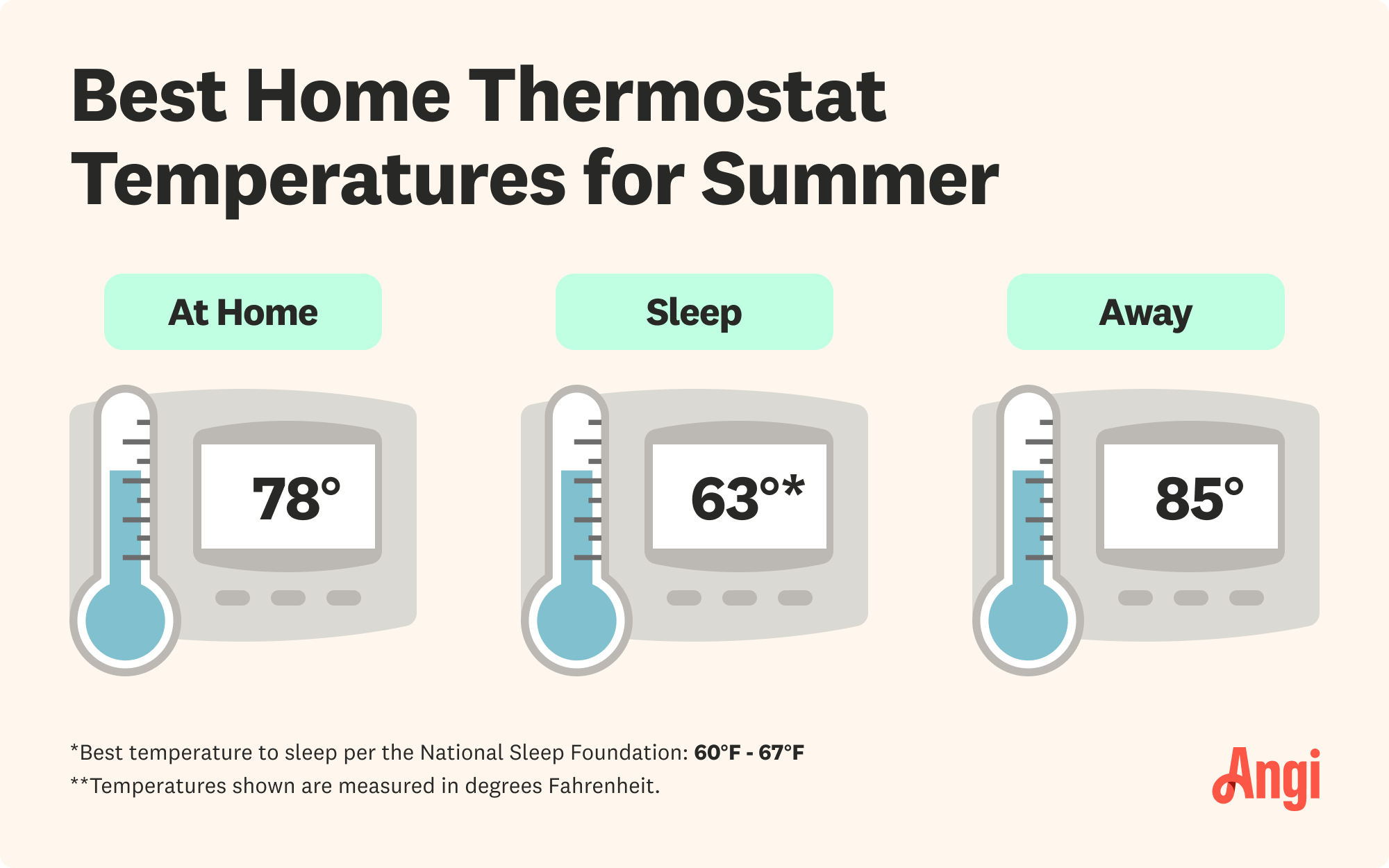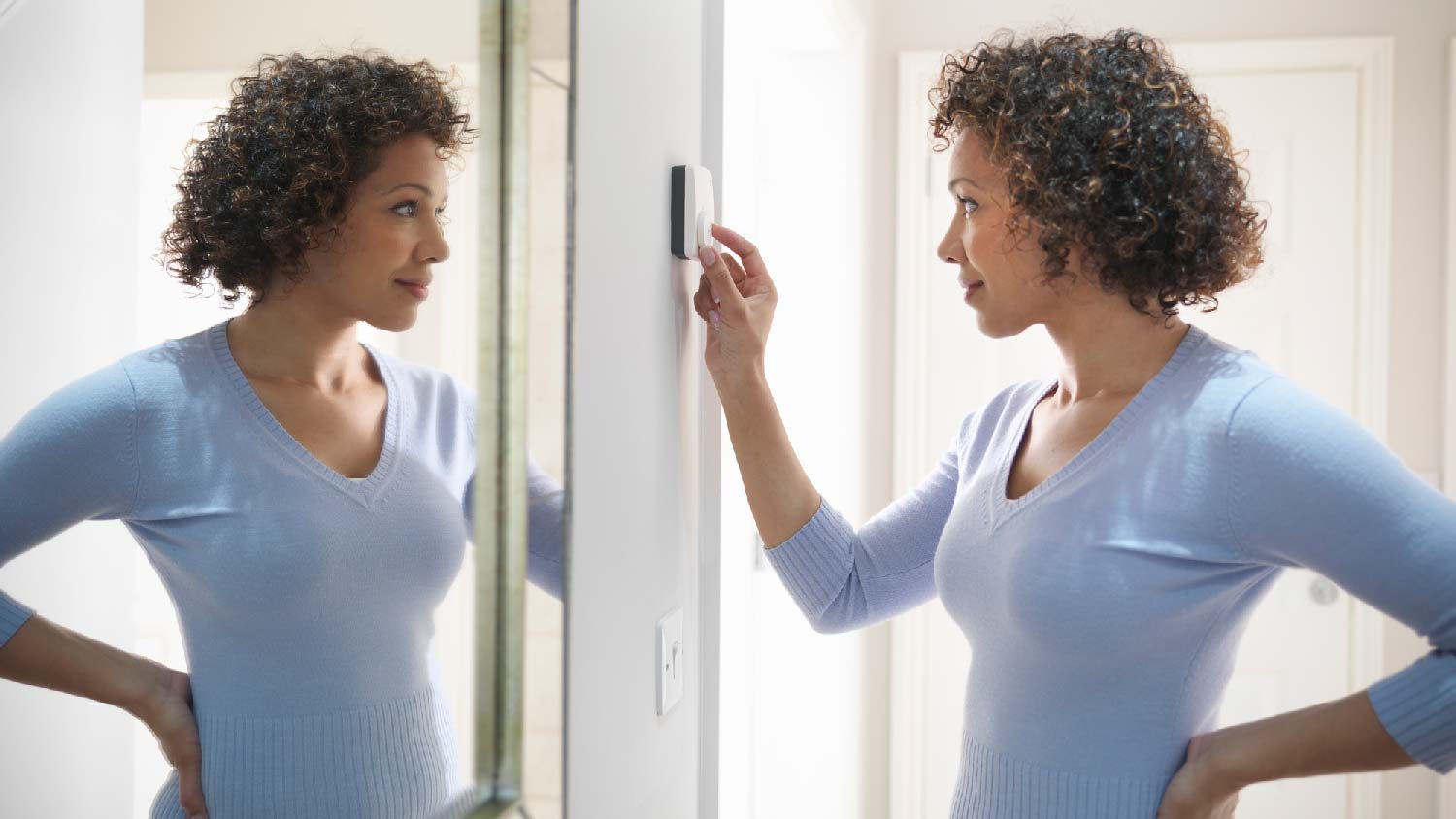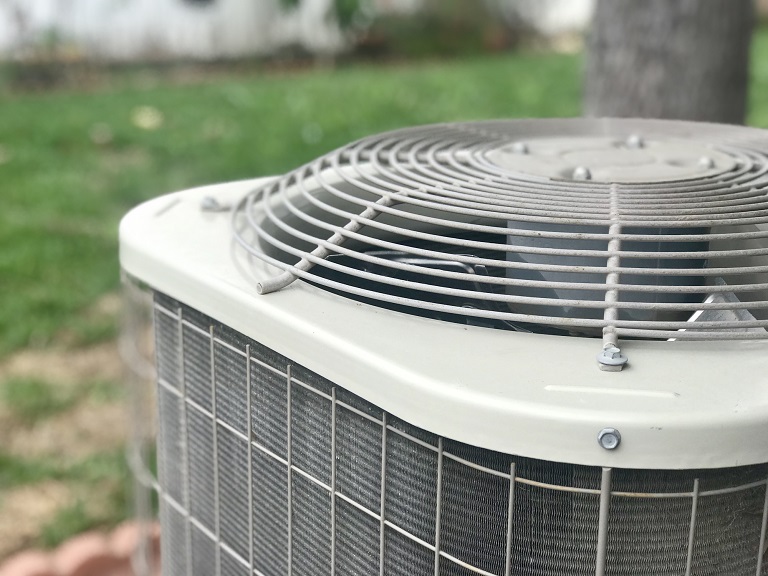
What you’ll pay in Los Angeles for furnace repairs depends on many factors. Here’s a breakdown of what can go wrong and the cost to fix those issues.
The article to end all thermostat-related fights is here—or is it?


Your thermostat setting can have a major impact on energy bills, and you may save 1% to 3% for every degree you raise your thermostat.
The most common recommendation for AC temperature is 78 degrees Fahrenheit, but this may be too warm for some to be comfortable.
Turning off your unit might not be more efficient than leaving it at 78 degrees.
Experts recommend a temperature of 65 degrees for sleep.
If you’ve ever shared a home with central AC with somebody, chances are you and that somebody have argued over the ideal thermostat setting. Personal preferences aside, this fight is one where your energy bill has the final word. But what really is the very best AC temperature for energy-saving? While many people default to 78 degrees Fahrenheit, this matter is one with some subtlety and nuance.
First things first: How much does your thermostat setting really impact your energy bill?
Although your energy bill heavily depends on factors like the efficiency of your HVAC setup and the size of your home, your thermostat also has quite the impact. Some experts estimate that for each degree you raise your thermostat setting, you could save between 1% and 3% on your energy costs. In other words, a 78-degree setting is likely a lot less expensive—and more sustainable—than a 72-degree setting.
Still, even a drastically reduced energy bill may not be worth it for someone who simply can’t stand the heat. No one wants to be sweaty and uncomfortable in their own home. And there are a few more factors to consider before you set—and forget—your default thermostat temperature.
While a higher AC setting can save both energy and money, the truth is, there’s not one simple, specific answer. Here are some considerations to keep in mind when deciding how to fine-tune your air conditioning setting.

If you’re home during the day and are active around the house, chances are you’ll want to keep the thermostat setting closer to 72 degrees than 78. For most people, a 78-degree room simply isn’t comfortable.
On the other hand, if you and your family all vacate the house for eight hours a day for school and work, it makes a lot of sense to crank the AC up to 78 degrees (or even slightly higher). You’re not there to experience the heat anyway, so why not save the money?
Note: Depending on the heat level outside, turning the unit off entirely while you’re out might not be the energy-efficient move it sounds like. That’s because it could take even more energy to cool your house back down to a reasonable temperature after several hours of heat once you get back.
One thing’s for sure: 78 degrees Fahrenheit at 85% humidity feels a whole lot different than 78 degrees at 35% humidity. If you live in the desert, you might be able to get away with a higher thermostat setting and still feel less sweaty and lethargic than you would if you live in, say, southern Florida. (Of course, a higher setting will still be more energy- and cost-efficient—but at what personal, physical cost?)
In most parts of the world, different times of day bring different outdoor temperatures. During the hottest part of the day, from about noon to 6 p.m., you may want to turn your AC down to 76 or 75 if you’re home, even if it’s less efficient. In the morning and evening, you can probably get away with a setting of 78 and maintain both comfort and sustainability.
However, if you’re sleeping, it might be worth cranking down the AC well past its most efficient and energy-saving settings. Experts at the National Sleep Foundation say that a temperature between 60 and 67 degrees degrees Fahrenheit makes for the best sleep, regardless of the season or weather.

We’ve got good news for those who want to enjoy a comfortably controlled climate and also keep their home as energy-efficient as possible. These days, programmable thermostats and smart thermostats can make the process of fine-tuning your temperature control much easier.
Programmable thermostats, as their name suggests, allow you to custom program different temperatures for different times of day. This means you don’t have to remember to manually change the settings every few hours.
Smart thermostats bring the game up yet another notch. After gathering data based on your habits, these intelligent home tools can actually set the thermostat for you, taking into account factors like when you’re home, when you’re usually out, and when you’re sleeping.
Not sure where to start? Your local thermostat installation company will be happy to help you talk through options, pick the best product for your home, and get it set up. That way, you can get back to the important stuff—like enjoying your home at a comfortable, argument-free temperature.
From average costs to expert advice, get all the answers you need to get your job done.

What you’ll pay in Los Angeles for furnace repairs depends on many factors. Here’s a breakdown of what can go wrong and the cost to fix those issues.

The average boiler installation cost depends on size, system type, and other factors. Keep reading to learn the cost of a new boiler in Los Angeles, CA.

Discover the factors influencing air duct replacement costs in Los Angeles, CA. Learn how to save money and make an informed decision for your home's comfort.

Discover the average air handler replacement cost, including labor and materials, plus expert tips to help you budget and save on your HVAC upgrade.

There are a few different types of refrigerant for AC systems, but some contain environmental hazards. Learn about the five main types of refrigerant.

Baseboard heater covers can endure a lot of wear and tear, but eventually you’ll want to replace them. Here’s the best way to switch out baseboard heater covers.